Haolian Chi
Pinching Antenna-aided NOMA Systems with Internal Eavesdropping
Dec 25, 2025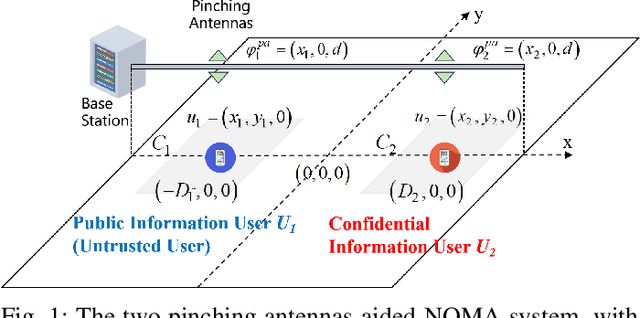
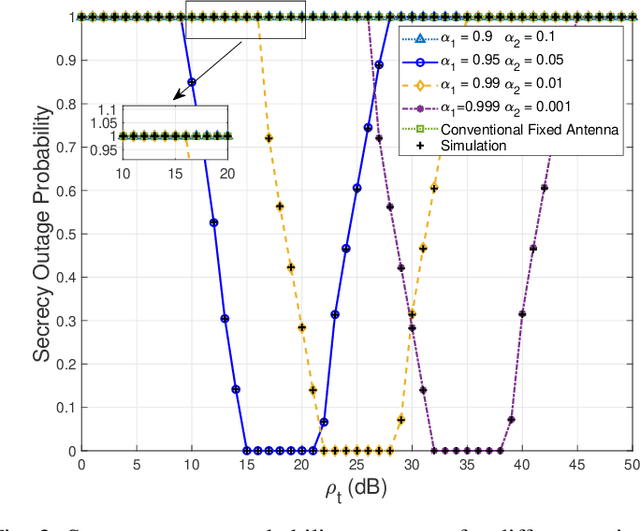
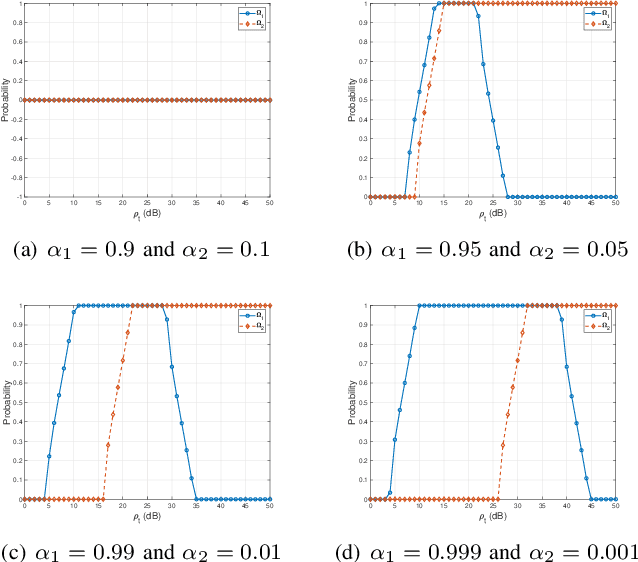
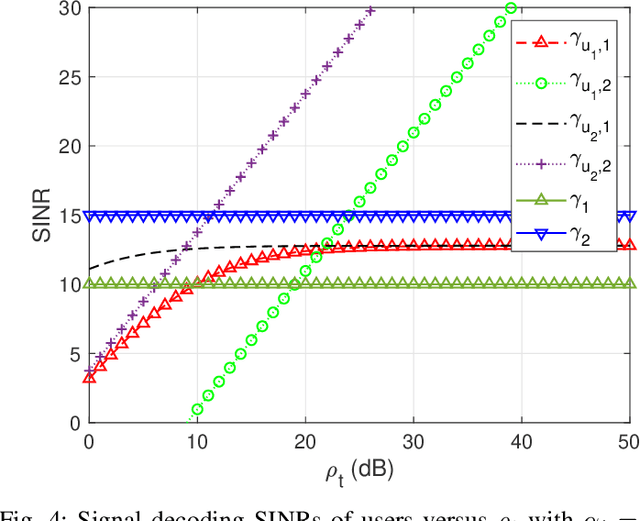
Abstract:As a novel member of flexible antennas, the pinching antenna (PA) is realized by integrating small dielectric particles on a waveguide, offering unique regulatory capabilities on constructing line-of-sight (LoS) links and enhancing transceiver channels, reducing path loss and signal blockage. Meanwhile, non-orthogonal multiple access (NOMA) has become a potential technology of next-generation communications due to its remarkable advantages in spectrum efficiency and user access capability. The integration of PA and NOMA enables synergistic leveraging of PA's channel regulation capability and NOMA's multi-user multiplexing advantage, forming a complementary technical framework to deliver high-performance communication solutions. However, the use of successive interference cancellation (SIC) introduces significant security risks to power-domain NOMA systems when internal eavesdropping is present. To this end, this paper investigates the physical layer security of a PA-aided NOMA system where a nearby user is considered as an internal eavesdropper. We enhance the security of the NOMA system through optimizing the radiated power of PAs and analyze the secrecy performance by deriving the closed-form expressions for the secrecy outage probability (SOP). Furthermore, we extend the characterization of PA flexibility beyond deployment and scale adjustment to include flexible regulation of PA coupling length. Based on two conventional PA power models, i.e., the equal power model and the proportional power model, we propose a flexible power strategy to achieve secure transmission. The results highlight the potential of the PA-aided NOMA system in mitigating internal eavesdropping risks, and provide an effective strategy for optimizing power allocation and cell range of user activity.
Secure Wireless-Powered zeRIS Communications
Mar 10, 2025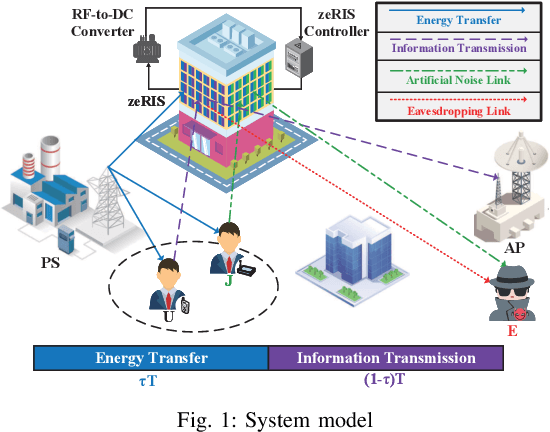
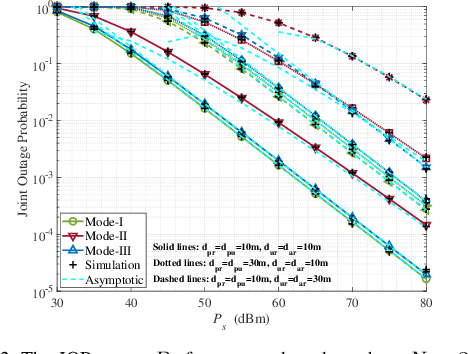
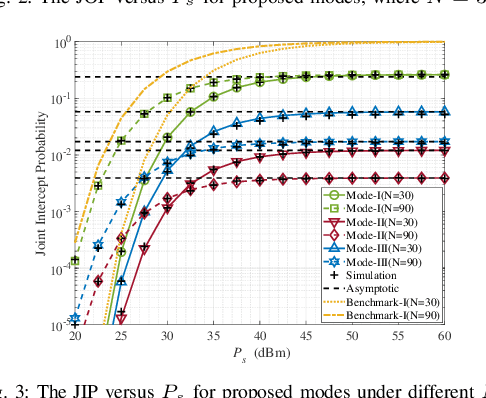
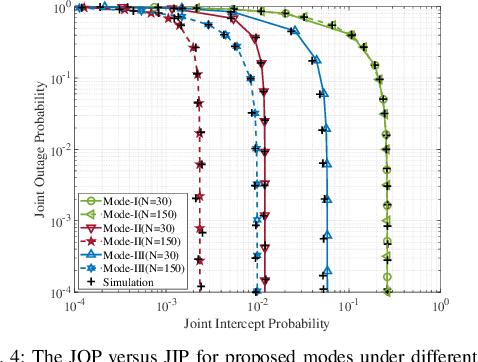
Abstract:This paper introduces the concept of wireless-powered zero-energy reconfigurable intelligent surface (zeRIS), and investigates a wireless-powered zeRIS aided communication system in terms of security, reliability and energy efficiency. In particular, we propose three new wireless-powered zeRIS modes: 1) in mode-I, N reconfigurable reflecting elements are adjusted to the optimal phase shift design of information user to maximize the reliability of the system; 2) in mode-II, N reconfigurable reflecting elements are adjusted to the optimal phase shift design of cooperative jamming user to maximize the security of the system; 3) in mode-III, N1 and N2 (N1+N2=N) reconfigurable reflecting elements are respectively adjusted to the optimal phase shift designs of information user and cooperative jamming user to balance the reliability and security of the system. Then, we propose three new metrics, i.e., joint outage probability (JOP), joint intercept probability (JIP), and secrecy energy efficiency (SEE), and analyze their closed-form expressions in three modes, respectively. The results show that under high transmission power, all the diversity gains of three modes are 1, and the JOPs of mode-I, mode-II and mode-III are improved by increasing the number of zeRIS elements, which are related to N2, N, and N^2_1, respectively. In addition, mode-I achieves the best JOP, while mode-II achieves the best JIP among three modes. We exploit two security-reliability trade-off (SRT) metrics, i.e., JOP versus JIP, and normalized joint intercept and outage probability (JIOP), to reveal the SRT performance of the proposed three modes. It is obtained that mode-II outperforms the other two modes in the JOP versus JIP, while mode-III and mode-II achieve the best performance of normalized JIOP at low and high transmission power, respectively.
 Add to Chrome
Add to Chrome Add to Firefox
Add to Firefox Add to Edge
Add to Edge